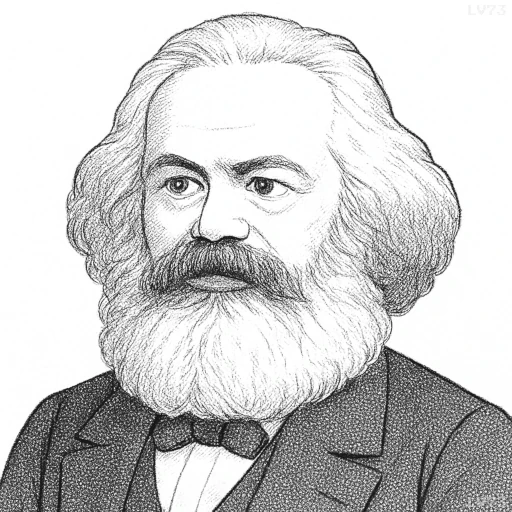“Without doubt, machinery has greatly increased the number of well-to-do idlers.”

- May 5, 1818 – March 14, 1883
- Born in the Kingdom of Prussia (Germany)
- Philosopher, economist, political thinker
table of contents
Quote
“Without doubt, machinery has greatly increased the number of well-to-do idlers.”
Explanation
In this quote, Marx critiques the impact of machinery on social class structures, particularly on the rise of the “well-to-do idlers”, a reference to the capitalist class or those who live off the labor of others. While industrial machinery and technological advancements have significantly increased production efficiency, Marx argues that they have also contributed to a system where the owners of the means of production (capitalists) can accumulate more wealth without directly contributing to the labor process. The “idlers” are those who derive their income from capital ownership rather than from working themselves. This highlights a key aspect of Marx’s critique of capitalism: that it allows for the concentration of wealth in the hands of a few, while the majority of the population continues to labor under increasingly alienating conditions.
Historically, this critique comes from Marx’s observation of the Industrial Revolution, where new machinery and technologies increased the productivity of labor, but the benefits were disproportionately shared. Instead of improving the lives of workers, who contributed their labor to the production process, machinery often led to job displacement, increased exploitation, and a growing gap between the wealthy and the working class. Capitalists (those who owned the factories, machines, and means of production) were able to extract more value from workers’ labor without participating in the actual production themselves, leading to the growth of a class of people who benefited from the system without contributing to it directly.
In the modern world, Marx’s critique remains relevant in the context of automation, artificial intelligence, and technological progress. While these advancements increase productivity, they also raise concerns about the displacement of workers and the increasing concentration of wealth in the hands of a few. For example, in industries where robotics and AI are replacing human labor, a small group of technology companies and their owners can amass significant wealth, while many workers find themselves displaced or working in precarious conditions. This leads to the continued relevance of Marx’s observation: that technological progress under capitalism often increases the number of unproductive capitalists (idlers) rather than benefiting workers or society as a whole.
Would you like to share your impressions or related stories about this quote in the comments section?
